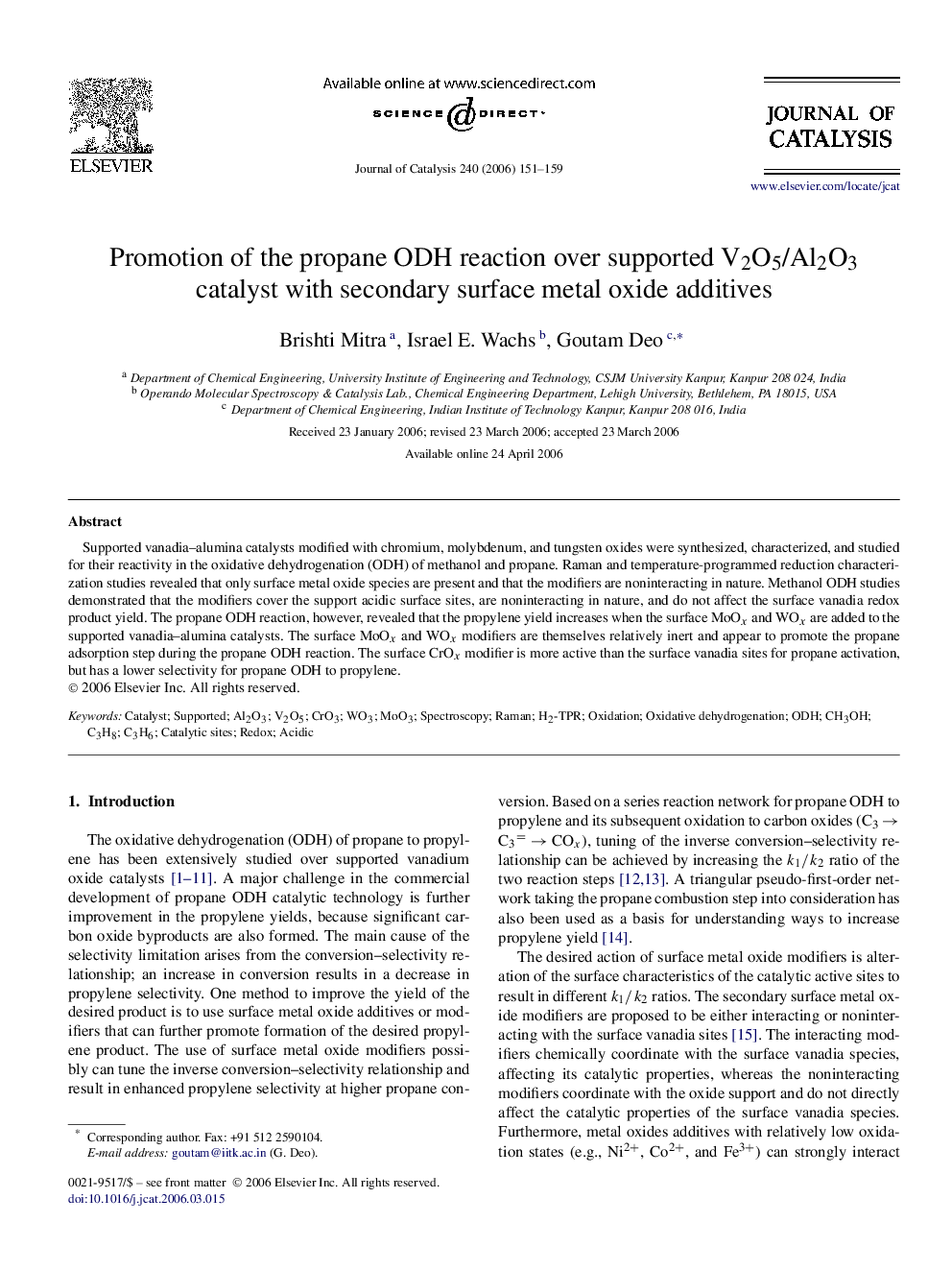| Article ID | Journal | Published Year | Pages | File Type |
|---|---|---|---|---|
| 63053 | Journal of Catalysis | 2006 | 9 Pages |
Supported vanadia–alumina catalysts modified with chromium, molybdenum, and tungsten oxides were synthesized, characterized, and studied for their reactivity in the oxidative dehydrogenation (ODH) of methanol and propane. Raman and temperature-programmed reduction characterization studies revealed that only surface metal oxide species are present and that the modifiers are noninteracting in nature. Methanol ODH studies demonstrated that the modifiers cover the support acidic surface sites, are noninteracting in nature, and do not affect the surface vanadia redox product yield. The propane ODH reaction, however, revealed that the propylene yield increases when the surface MoOx and WOx are added to the supported vanadia–alumina catalysts. The surface MoOx and WOx modifiers are themselves relatively inert and appear to promote the propane adsorption step during the propane ODH reaction. The surface CrOx modifier is more active than the surface vanadia sites for propane activation, but has a lower selectivity for propane ODH to propylene.
